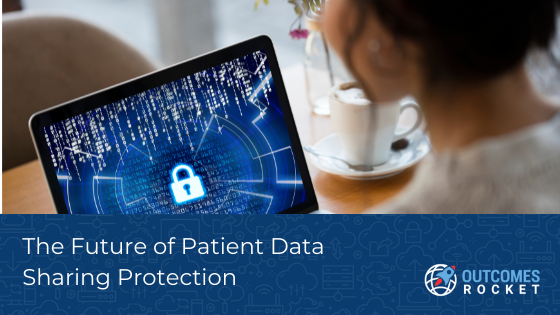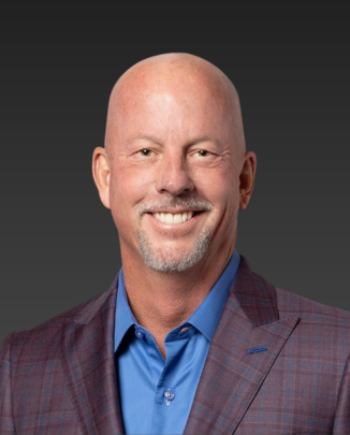
There is a lot of information in today’s world.
From our daily online interactions to the emails, photos, videos, and other kinds of information we send, not to mention the ones left stored in our phones and computer devices, we share a lot of data.
According to a Forbes article published in 2018, about 2.5 quintillion bytes of data are created each day and that pace has been accelerating. The writer also mentioned that “90 percent of the data in the world was generated in the last two years.” That’s mind-boggling, but if you consider it, it’s highly possible. Just last year, there were about 70,000 Google searches every second. That’s roughly 5.4 billion Google searches per day.
That’s general data. What about healthcare data?
We all know that healthcare generates a ton of data. Patients’ medical records alone are already considered big data, not to mention surveys, administrative data, claims data, records, clinical trial records, disease records, and peer-reviewed literature.
A news article released last year by the Globe Newswire reported that the global big data in healthcare is projected to be worth $78.03 billion in 2027.
Because there is a lot of data, there are also plenty of opportunities to steal this data. This is especially true in the healthcare industry. Its massive amount of data is a magnet for hackers. Healthcare organizations collect and store huge data sets, many of which are sensitive and financial information, making it a highly appealing target for cybercrime.
However, there is one thing that ensures that the data we send is only received and seen by its intended recipients, and that is encryption. Encryption is the process of turning readable data into unreadable text so that the only person who can read (or scramble) it is the one with the code or decryption key. Encrypting data safeguards the digital data, and through encryption protocols, businesses can protect their critical data.
For industries like healthcare where stricter rules over data privacy are required, companies like Zettaset help secure and encrypt data to ensure compliance with the stringent HIPAA requirements while also maximizing the use of the collected data.
Zettaset is a software-defined encryption provider whose products protect against data thefts and can be transparently deployed across all physical and virtual environments.
Founded in 2009, the company is committed to providing transparent, high-performance data protection so the benefits of DevOps initiatives are not lost when security is implemented.
In my podcast interview with Tim Reilly, CEO at Zettaset, he said that if he can enable the protection of data to benefit healthcare providers and anyone else within the healthcare vertical, then the company is doing its job.
Zettaset’s security solutions are designed to address the data protection and security required in healthcare. Solutions like XCrypt Full Disk, XCrypt Archive, and XCrypt S3 ensure organizations enjoy a scale-out full disk encryption solution and software-only backup and restore, delivering quality performance with the needed security for compliance.
From the website, XCrypt Full Disk is described as a high-performance, infinitely scalable, full disk encryption solution ideal for bulk encryption of stored data and can be applied to both data-at-rest and data-in-motion. This all-software approach to encryption simplifies deployment and eliminates the need for proprietary appliances.
XCrypt Archive is a high-performance, software-only backup and restore solution that works with structured or unstructured data. It is suitable for data storage of any size, from a single file to an entire database. This solution does not need proprietary hardware nor specialized encryption experts on staff as it can be easily maintained by the existing IT staff.
The XCrypt S3 or XCrypt Object is designed to meet the unique data protection requirements of high-volume, cloud-based, unstructured object stores. This all-software solution simplifies deployment, easily scales, and delivers exceptional price/performance. It is highly granular and provides ultra-secure authenticated encryption using associated data (AEAD) to protect Object ciphertext from unauthorized modification.
For more Zettaset products, please visit https://www.zettaset.com/products/xcrypt-data-encryption-platform/.
The DigitalGuardian reported that in 2019, a data breach can cost a company an average of $18.9 million. In healthcare, it cost $6.45 million per breach, topping all other industries. Healthcare breaches also take the longest time to identify. As a result, the healthcare industry has the biggest difficulty retaining customers following a breach.
Zettaset’s solution is to encrypt the data in all forms.
“Zettaset encrypts data in whatever form it may be in, whether it’s cloud, a new DevOps container, or just a good old-fashioned brick and mortar server.,” Tim said. “We also provide encryption products that will protect data all the way down to a device. If a device has enough electricity and CPU power, Zettaset can encrypt whatever is in there. Now with that sense of security and compliance, which is supremely important, Zettasetcan allow any provider to have the true benefit of all the data they create.”
But encryption’s result does not end in security and compliance. Zettaset’s team can get the different pieces of security solution higher, a preventative step to protect your data. It can also detect red flags in your system, going from a preventative data piece to now working as a detective data piece.
And one of the best things about the Zettaset software is you can deploy it without having a full IT unit because it was designed to make things easy to use. So even small clinics can take advantage of it, secure their data, improve interoperability in communicating with other health organizations, and deliver better patient care.
To listen to my full interview with Tim Reilly, please visit https://outcomesrocket.health/zettaset/2021/05/.
According to the 2020 Centers for Disease Control and Prevention report, roughly 34.2 million Americans have diabetes,...
Read MoreAs a farmer, Rod was used to long days. He worked 18 hours a day, 7 days...
Read MoreWith investors receiving hundreds of pitch decks every year, how do you create a compelling presentation that...
Read More
Brittany Busse Co-Founder, President, and Chief Medical Officer at
ViTelHealth


Stephen Thorne Founder and CEO at
Pacific Dental Services

Keith Carlson Nurse Career Coach